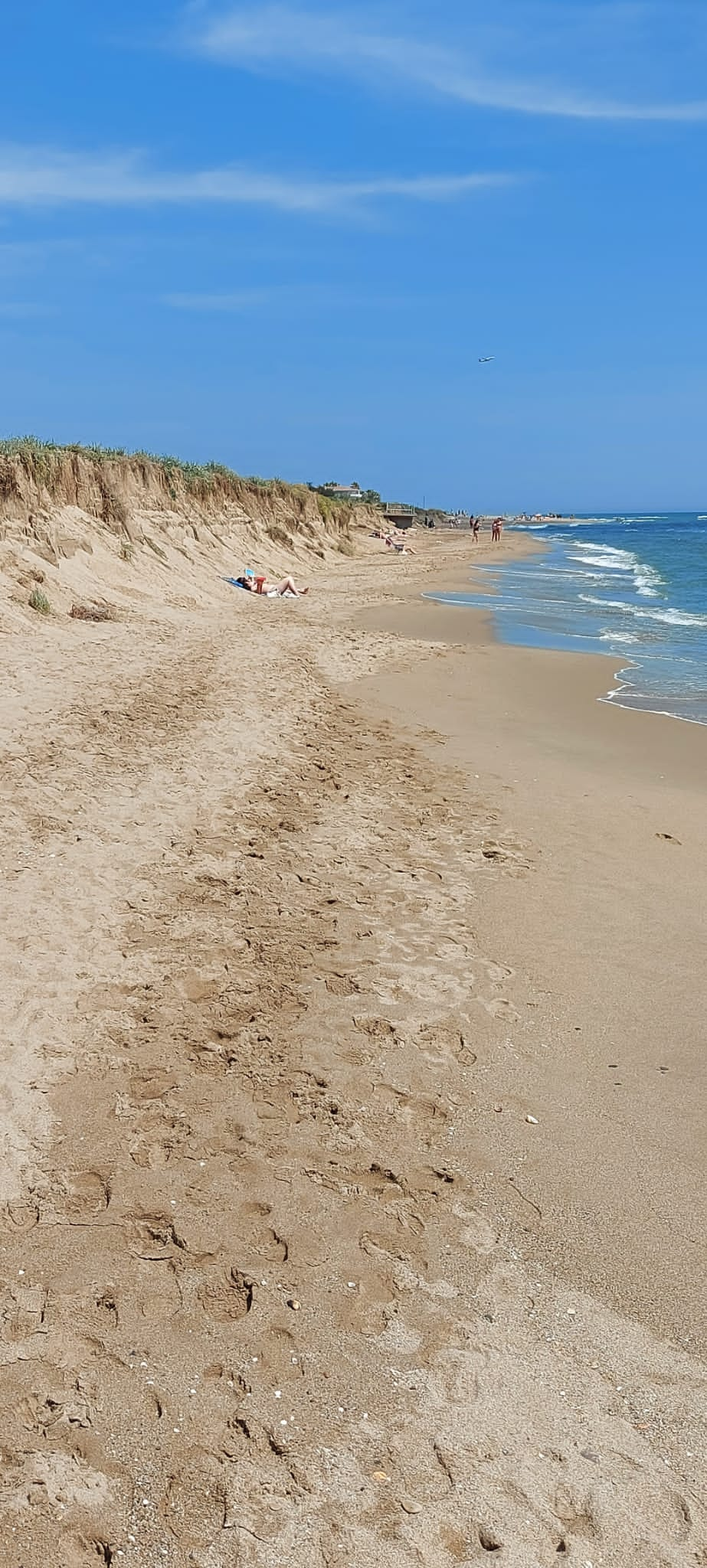Spain’s disappearing beaches: Climate change and overdevelopment threaten ‘national treasures’
Tourists are piling back to Spain after the pandemic, but the country’s famous beaches are under threat

After two years of Covid, British tourists are finally returning in force to Spain’s golden beaches – but may be surprised at what they find.
Ecologists fear that unless action is taken soon, there will be few beaches left to savour. From the Costa Brava in the north to the Costa del Sol in the south, Spain’s coastline is being washed away by violent storms blamed on climate change. Critics say there are no long-term measures to halt erosion.
The Spanish government will launch a national plan later this year, supported by European Union recuperation funds, to save the country’s 11,000 km (7,000 miles) of coastline from the effects of climate change. Beaches in popular tourist destinations like Malaga, Almeria and Cadiz have suffered from erosion, rising sea levels and overconstruction next to the sea.
British expatriates who own villas by the water have seen their properties increasingly threatened by rising sea levels. Others face legal threats as their properties are too close to the sea, contravening the law.
In Marbella, a resort popular with British tourists, Kenza Eyzaguirre Carlson, 34, a half-French, half-American PR executive, collects rubbish from the beach and campaigns to stop the famous sand from disappearing.
“A recent storm destroyed some places on the seafront. We have to do something long term to stop this happening again and again, otherwise it is going to be economically disastrous for Marbella,” she said.
In Barcelona, the city council had to resort to asking the central government to send more sand after parts of its famous city beaches disappeared into the sea after a big storm in March.
In Gava Mar, an upmarket resort just outside Barcelona popular with FC Barcelona and former Arsenal striker Pierre-Emery Aubameyang, the sea has swallowed up much of the beach.
Conservationists started to rebuild the dunes to reinforce the beach and are fighting against local authorities who, they claim, allow raw sewage to be expelled into the sea where children swim.
Robert Wilson, an engineer from Scotland who moved to Spain 20 years ago, often volunteers to put plants into the dunes to reinforce them.
“You have to do something to save this beach. It is our natural treasure. Without this, what is left here?” he told The Independent.
In the southern region of Almeria, famous for spaghetti western films and tomato farms, Julian García Valencia has spent the past 12 years fighting to save the beach at Vera.
Mr Valencia, president of the Playa Azul Association, said he wants to preserve the seven kilometres of beaches near the resort, which features three large tourist hotels. He concedes that at times he feels like King Canute.
“The sea has advanced about three metres up the beach in the past ten years. To add to that, they have put groynes into the sea, which have not protected the beach properly,” he said.
“We have managed to slow this process down perhaps for now, but not stop it.”
In Malaga, Elisa Martinez Vizcaino is battling to save Arraijanal, which she describes as “one of the last virgin beaches next to the city”.
Next to Torremolinos, the beach is popular with a more ‘hippy crowd’ of British tourists who come to relax under the sun, she said.
Ms Martínez, an architect, said plans to build a training ground for FC Malaga next to the beach have been opposed by campaigners.

“The real problem is overdevelopment next to the beach. About 75 per cent of the land next to the beaches near Malaga are covered in hotels or other tourist developments,” she told The Independent.
Spain’s Coastal Law states that private building is not allowed within 100 metres of the sea front, as the beach is regarded as a public area. Up to 500 metres from the sea, houses, hotels and other buildings are restricted. In reality, in many parts of Spain, this law was ignored in the building boom before the 2008 financial crash.
The Platform for those Affected by the Coastal Law (PNACL) has fought to defend some Britons and others with homes facing the sea from losing their properties for breaching this law.
Last year, José Ortega, the PNACL lawyer, won a victory in the Supreme Court of Valencia to defend many expatriate owners with properties along the seafront.
It was met with opposition, however, from conservationists, who claim holiday villas should be banned close to the beach.
“What we need to do is to stop construction in front of the sea, which is eating up our beaches,” said Jose Ignacio Dominguez of Ecologists in Action.






Join our commenting forum
Join thought-provoking conversations, follow other Independent readers and see their replies
Comments